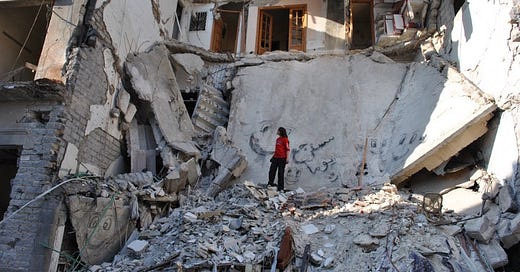NYFF 2014: ‘Silvered Water, Syria Self-Portrait’ Is an Essential Essay on Violence, Civil War and New Cinema

Silvered Water, Syria Self-Portrait begins with a revolution and a circumcision. The former is the Syrian Uprising that erupted in the spring of 2011 in the wake of revolutions in Egypt and around the Middle East. The latter is a bit more eccentric, a home movie of filmmaker Ossama Mohammed’s own circumcision. He has chosen to start his film with two in…
Keep reading with a 7-day free trial
Subscribe to Nonfics to keep reading this post and get 7 days of free access to the full post archives.



